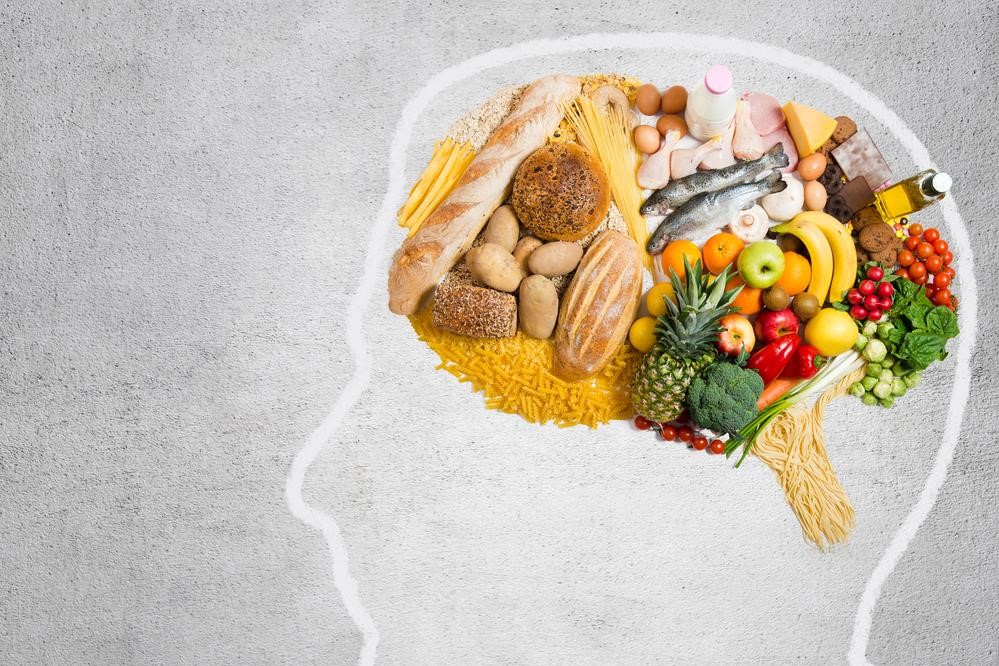Essential Vitamins for Enhancing Brain Health and Improving Memory
This comprehensive article explores essential vitamins that support brain health, memory enhancement, and cognitive functions. It details key nutrients like B12, folate, Vitamin E, Omega-3 fatty acids, and Vitamin C, emphasizing their roles, natural sources, and benefits. Understanding these vital nutrients can help you optimize your diet for better mental clarity, focus, and age-related cognitive resilience. Incorporating these vitamins through diet or supplements can significantly boost brain vitality and delay cognitive decline as you age.

Discover the Key Vitamins That Support Brain Function and Memory Enhancement
Maintaining optimal brain health and boosting memory retention are vital goals as we age. A balanced intake of specific vitamins plays a crucial role in supporting cognitive functions, improving concentration, and preserving mental clarity. In today’s fast-paced world, understanding which nutrients are essential can help you make informed dietary choices to promote lifelong cognitive vitality. This comprehensive guide explores the most effective vitamins that contribute to brain health, highlighting their functions, natural sources, and the benefits of supplementation.
Vitamin B12
Vitamin B12, also known as cobalamin, is undeniably one of the most important nutrients for brain health. It is essential for maintaining healthy nerve cells and supporting the production of DNA and red blood cells. A deficiency in B12 can lead to neurological issues, memory problems, and cognitive decline. The body requires only a small amount of B12 daily—about 2.4 micrograms—but ensuring sufficient intake is vital for mental sharpness and neurological function.
Most people can obtain adequate amounts through diet, particularly from animal-based sources such as meat, poultry, fish, eggs, and dairy products. Vegetarians and vegans may need to consider supplements or foods fortified with B12 to meet their nutritional requirements. B12’s role extends to supporting nerve signaling pathways and synthesizing myelin, the protective sheath around nerve fibers, which are critical for swift and efficient communication within the brain.
Beyond its role in red blood cell production, Vitamin B12 contributes significantly to metabolic energy generation, supporting overall brain function. A steady supply of B12 is linked to improved mood, enhanced focus, and sharper cognitive abilities. For individuals experiencing forgetfulness or neurological symptoms, increasing B12 intake—via diet or supplements—can often result in noticeable improvements. Regular checkups and blood tests can help identify deficiencies, enabling targeted intervention to restore optimal levels.
Folate (Vitamin B9)
Folate, another B vitamin, is integral to brain health, especially for cognitive functions such as memory recall and mental alertness. It assists in creating neurotransmitters, which are chemical messengers essential for communication between neurons. Adequate folate intake improves blood oxygenation and promotes healthy red blood cell formation, thereby supporting mental efficiency and reducing mental fatigue.
Since folate is water-soluble and not stored in the body, daily consumption through diet is essential. Rich sources include leafy greens, legumes, citrus fruits, and fortified cereals. A deficiency in folate can manifest as tiredness, irritability, and difficulty concentrating, all of which impair memory performance. Ensuring sufficient folate levels is especially important during pregnancy, as it supports fetal brain development, and as part of a strategy to sustain cognitive health in aging populations.
Vitamin E
Recognized for its potent antioxidant properties, Vitamin E plays a pivotal role in protecting neural tissues from oxidative damage caused by free radicals. It helps maintain the integrity of nerve cell membranes, fostering long-term neural health and resilience. Studies have shown that Vitamin E supplementation can slow the progression of memory decline in older adults and support overall cognitive function.
The recommended daily dose for Vitamin E is approximately 200 International Units (IU), but during stressful periods or increased mental workload, this can be temporarily increased to about 400–500 IU under medical supervision. Excessive intake, however, should be avoided as it can lead to bleeding complications. Natural sources rich in Vitamin E include nuts, seeds, vegetable oils, and green leafy vegetables. For optimal brain support, it’s advisable to incorporate these foods into your diet regularly.
Omega-3 Fatty Acids (EPA and DHA)
Omega-3 fatty acids, particularly eicosapentaenoic acid (EPA) and docosahexaenoic acid (DHA), are fundamental for brain structure and function. They constitute a significant component of neuronal membranes, enhancing fluidity and signal transmission. Adequate omega-3 intake has been linked to improved memory, heightened learning capacity, and reduced risk of neurodegenerative diseases.
Research indicates that children with higher omega-3 levels tend to perform better academically and display sustained attention. For adults, maintaining optimal levels can help preserve cognitive abilities and prevent age-related decline. Omega-3 fatty acids are primarily found in fatty fish such as salmon, mackerel, and sardines. For those who do not consume fish regularly, high-quality fish oil supplements or plant-based sources like flaxseeds and walnuts (rich in ALA) can be effective alternatives.
Incorporating omega-3s into your daily diet can significantly strengthen neural connections, boost memory retention, and promote mental clarity throughout life. They also support cardiovascular health, which is closely linked to cognitive well-being.
Vitamin C
Well-known for its immune-boosting properties, Vitamin C also plays a crucial role in cognitive health. It is involved in synthesizing neurotransmitters such as norepinephrine and dopamine, which regulate attention, focus, and response times. Adequate Vitamin C intake can enhance mental clarity, reduce mental fatigue, and protect the brain from oxidative stress caused by external factors like pollution, stress, and alcohol consumption.
Good dietary sources include citrus fruits, berries, bell peppers, broccoli, and leafy greens. Maintaining sufficient Vitamin C levels through diet or supplements—after consulting with a healthcare provider—can bolster cognitive function and support a healthy, alert mind. For individuals experiencing stress or neurocognitive impairments, Vitamin C supplementation may provide additional benefits.
Overall, combining these vital vitamins and nutrients can provide a holistic approach to supporting brain health, improving memory, and preventing cognitive decline. Medical professionals often recommend a balanced regimen that includes Vitamin E, Vitamin C, Omega-3s, B vitamins, and magnesium to protect and enhance neural function, especially in aging populations or those at risk of neurodegenerative conditions. Staying informed and proactive about your nutritional intake is essential for sustained mental performance and overall well-being.





